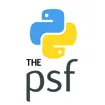NEW Research Engineer GEM (GlobalQuakeModel)
Offer summary
Qualifications:
Strong knowledge of computational programming for scientific applications, particularly in Python., Familiarity with scientific libraries such as numpy, scipy, pandas, and matplotlib., Proven ability to work in a multidisciplinary team with good communication skills., A PhD in a STEM discipline is appreciated but not required..Key responsibilities:
- Develop open-source tools and software for probabilistic seismic hazard and risk assessment.
- Collaborate with scientists globally to create national, regional, and global PSHA hazard models.
- Conduct active research into new theoretical concepts and computational techniques for seismic hazard.
- Train scientists and students in software usage and seismic hazard analysis.
Job description
Job Title
Research Engineer
Job Description
Primary duties for this position will be:
The development of open-source tools and software for probabilistic seismic hazard and risk assessment, in collaboration with the IT team
To support the creation of national, regional and global PSHA hazard models, in close collaboration with scientists working in different parts of the world
Active research into new theoretical concepts and computational techniques for the development and application of probabilistic seismic hazard.
Training scientists and students in both the use of the software as well as the scientific aspects of seismic hazard analysis
Restrictions
The Global Earthquake Model (GEM) is a global collaborative effort that brings together state-of-the-art science and national, regional and international organisations. GEM promotes the creation of open tools, models and datasets for the calculation of seismic hazard and risk. The GEM Hazard Team assembles and maintains global and regional earthquake databases, and develops and provides the capability to compute and analyse seismic hazard. Currently, the GEM Hazard Team actively develops the OpenQuake Engine (the GEM seismic hazard calculation engine) and several tools and applications for PSHA input model creation and testing, such as the OpenQuake Hazard Modeller’s Toolkit or the OpenQuake Model Building Toolkit. The team also collaborates with groups of scientists in different parts of the world involved in activities promoted by GEM.
Contact Info
Research Engineer
Job Description
Primary duties for this position will be:
The development of open-source tools and software for probabilistic seismic hazard and risk assessment, in collaboration with the IT team
To support the creation of national, regional and global PSHA hazard models, in close collaboration with scientists working in different parts of the world
Active research into new theoretical concepts and computational techniques for the development and application of probabilistic seismic hazard.
Training scientists and students in both the use of the software as well as the scientific aspects of seismic hazard analysis
Restrictions
- Telecommuting is OK
- No Agencies Please
- Strong knowledge of computational programming for scientific applications. Our software (OpenQuake) is developed in Python and knowledge of the usual scientific stack (numpy, scipy, pandas, matplotlib, numba, ...) is expected.
- Proven ability to work in a multidisciplinary team
- Good oral and written communication skills
- Strong multi-tasking and organisational skills
- Ability to work collaboratively, openness to discussion and willingness to collaborate with the other members of the team
- A PhD in one of the following STEM disciplines (or related) is not required by appreciated
The Global Earthquake Model (GEM) is a global collaborative effort that brings together state-of-the-art science and national, regional and international organisations. GEM promotes the creation of open tools, models and datasets for the calculation of seismic hazard and risk. The GEM Hazard Team assembles and maintains global and regional earthquake databases, and develops and provides the capability to compute and analyse seismic hazard. Currently, the GEM Hazard Team actively develops the OpenQuake Engine (the GEM seismic hazard calculation engine) and several tools and applications for PSHA input model creation and testing, such as the OpenQuake Hazard Modeller’s Toolkit or the OpenQuake Model Building Toolkit. The team also collaborates with groups of scientists in different parts of the world involved in activities promoted by GEM.
Contact Info
- Contact: Michele Simionato
- E-mail contact: michele.simionato@gmail.com
- Web: https://www.globalquakemodel.org/
Required profile
Experience
Spoken language(s):
English
Check out the description to know which languages are mandatory. Other Skills
- Multitasking
- Organizational Skills
- Teamwork
- Communication
Related jobs
Remote Travel Coordinator- Entry

Remote Travel Coordinator- Entry
30+ days ago
NEVER ENDING TRAVELS
- From: Anywhere (Full Remote)
- Full time
Senior Software Developer

Senior Software Developer
30+ days ago
Hubs
- From: Mexico (Full Remote)
- Full time
ASP.NETEntity FrameworkMicrosoft SQL Server Data Engine (MSDE)C# (Programming Language)
Représentant(e) ventes internes bilingue/Bilingual Inside Sales Representative

Représentant(e) ventes internes bilingue/Bilingual Inside Sales Representative
25 days ago
Compugen Inc
- From: Canada (Full Remote)
- Full time
Order ManagementUser Experience (UX)Sales ManagementProduct Knowledge
Senior DevOps Engineer (Azure)

Senior DevOps Engineer (Azure)
30+ days ago
Rackspace Technology
- From: Germany (Full Remote)
- Full time
Microsoft AzureCI/CDCloud ComputingAutomated Information Systems
Manager, National Alliances - SHI (Remote)

Manager, National Alliances - SHI (Remote)
30+ days ago
CrowdStrike
- From: New Jersey (USA), Texas (USA) (Full Remote)
- Full time
Channel Sales
